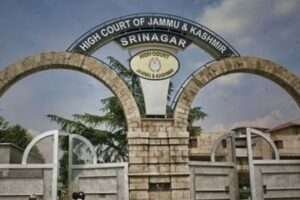Bar U/s 9(3) Arbitration Act Not Applicable If Application Was Taken Up By Court Before Constitution Of Arbitration Tribunal
Case: Arcelor Mittal Nippon Steel India Ltd. vs Essar Bulk Terminal Ltd.
Coram: Justices Indira Banerjee and JK Maheshwari
Case No: CA 5700 OF 2021
Court Observation: “Once an Arbitral Tribunal is constituted the Court cannot take up an application under Section 9 for consideration, unless the remedy under Section 17 is inefficacious. However, once an application is entertained in the sense it is taken up for consideration, and the Court has applied its mind to the Court can certainly proceed to adjudicate the application”
It is now well settled that the expression “entertain” means to consider by application of mind to the issues raised. The Court entertains a case when it takes a matter up for consideration. The process of consideration could continue till the pronouncement of judgment.. Once an Arbitral Tribunal is constituted the Court cannot take up an application under Section 9 for consideration, unless the remedy under Section 17 is inefficacious. However, once an application is entertained in the sense it is taken up for consideration, and the Court has applied its mind to the Court can certainly proceed to adjudicate the application.
With the law as it stands today, the Arbitral Tribunal has the same power to grant interim relief as the Court and the remedy under Section 17 is as efficacious as the remedy under Section 9(1). There is, therefore, no reason why the Court should continue to take up applications for interim relief, once the Arbitral Tribunal is constituted and is in seisin of the dispute between the parties, unless there is some impediment in approaching the Arbitral Tribunal, or the interim relief sought cannot expeditiously be obtained from the Arbitral Tribunal
Even after an Arbitral Tribunal is constituted, there may be myriads of reasons why the Arbitral Tribunal may not be an efficacious alternative to Section 9(1). This could even be by reason of temporary unavailability of any one of the Arbitrators of an Arbitral Tribunal by reason of illness, travel etc.
There could be numerous reasons which render the remedy under Section 17 inefficacious. To cite an example, the different Arbitrators constituting an Arbitral Tribunal could be located at far away places and not in a position to assemble immediately. In such a case an application for urgent interim relief may have to be entertained by the Court under Section 9(1).
Applications for interim relief are inherently applications which are required to be disposed of urgently. Interim relief is granted in aid of final relief. The object is to ensure protection of the property being the subject matter of Arbitration and/or otherwise ensure that the arbitration proceedings do not become infructuous and the Arbitral Award does not become an award on paper, of no real value.
The principles for grant of interim relief are (i) good prima facie case, (ii) balance of convenience in favour of grant of interim relief and (iii) irreparable injury or loss to the applicant for interim relief. Unless applications for interim measures are decided expeditiously, irreparable injury or prejudice may be caused to the party seeking interim relief.
It could, therefore, never have been the legislative intent that even after an application under Section 9 is finally heard relief would have to be declined and the parties be remitted to their remedy under Section 17. It is reiterated that Section 9(1) enables the parties to an arbitration agreement to approach the appropriate Court for interim measures before the commencement of arbitral proceedings, during arbitral proceedings or at any time after the making of an arbitral award but before it is enforced and in accordance with Section 36 of the Arbitration Act. The bar of Section 9(3) operates where the application under Section 9(1) had not been entertained till the constitution of the Arbitral Tribunal. Ofcourse it hardly need be mentioned that even if an application under Section 9 had been entertained before the constitution of the Tribunal, the Court always has the discretion to direct the parties to approach the Arbitral Tribunal, if necessary by passing a limited order of interim protection, 37 particularly when there has been a long time gap between hearings and the application has for all practical purposes, to be heard afresh, or the hearing has just commenced and is likely to consume a lot of time. In this case, the High Court has rightly directed the Commercial Court to proceed to complete the adjudication.
[doc id=9568]
Previous Posts
Hindu Remarried Widow Has Right To Deceased Husband’s Property If She Wasn’t Remarried On The Day Succession Opens: Bombay High Court Download Judgement
Keywords
Arbitration Act, Arbitration Tribunal, Bar U/s 9(3) Arbitration Act




